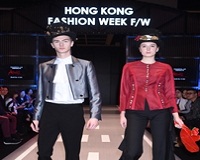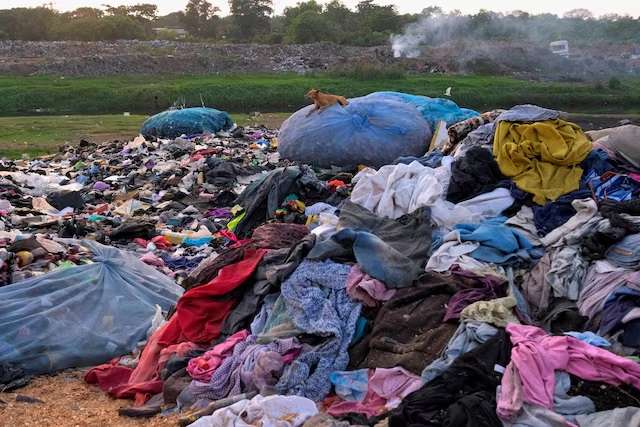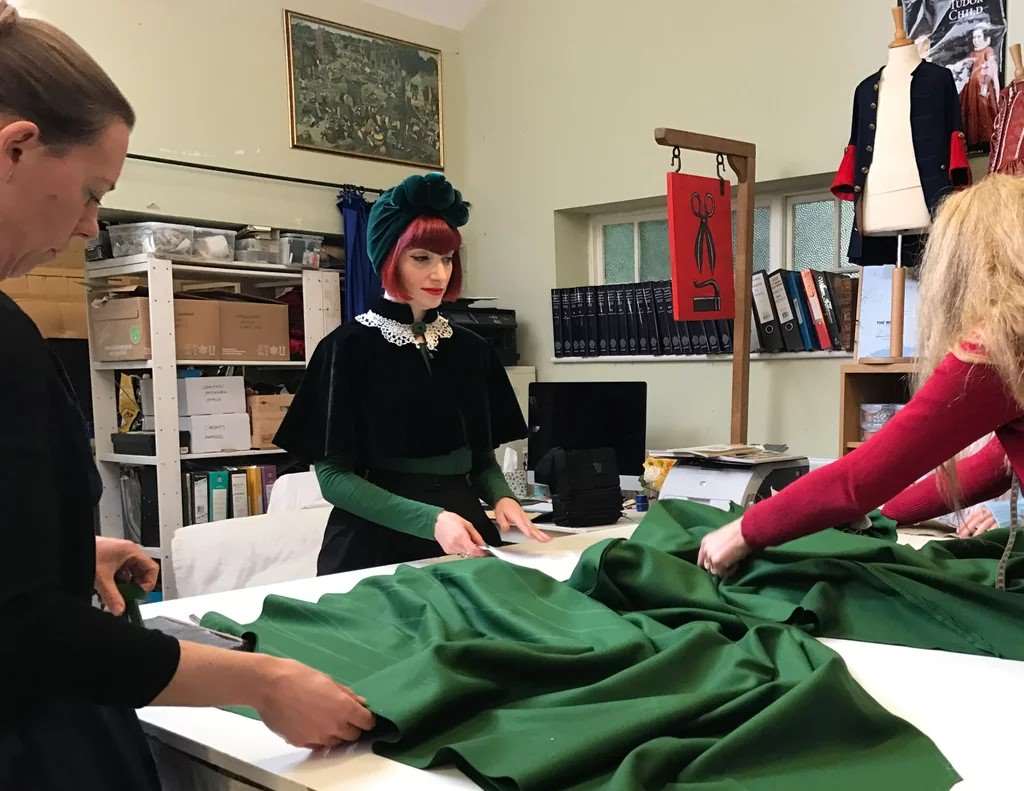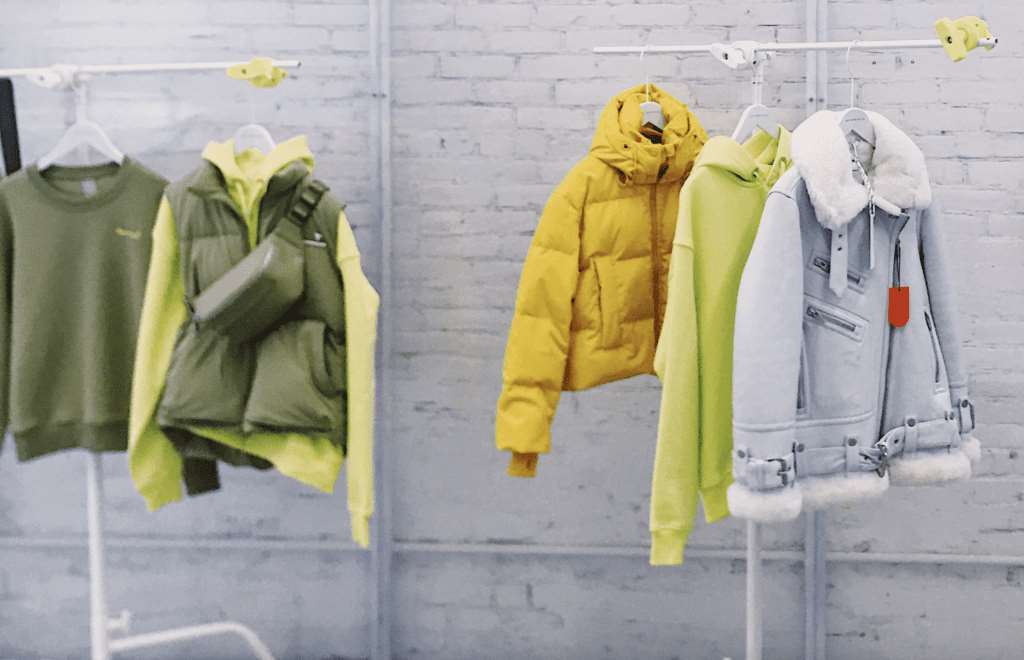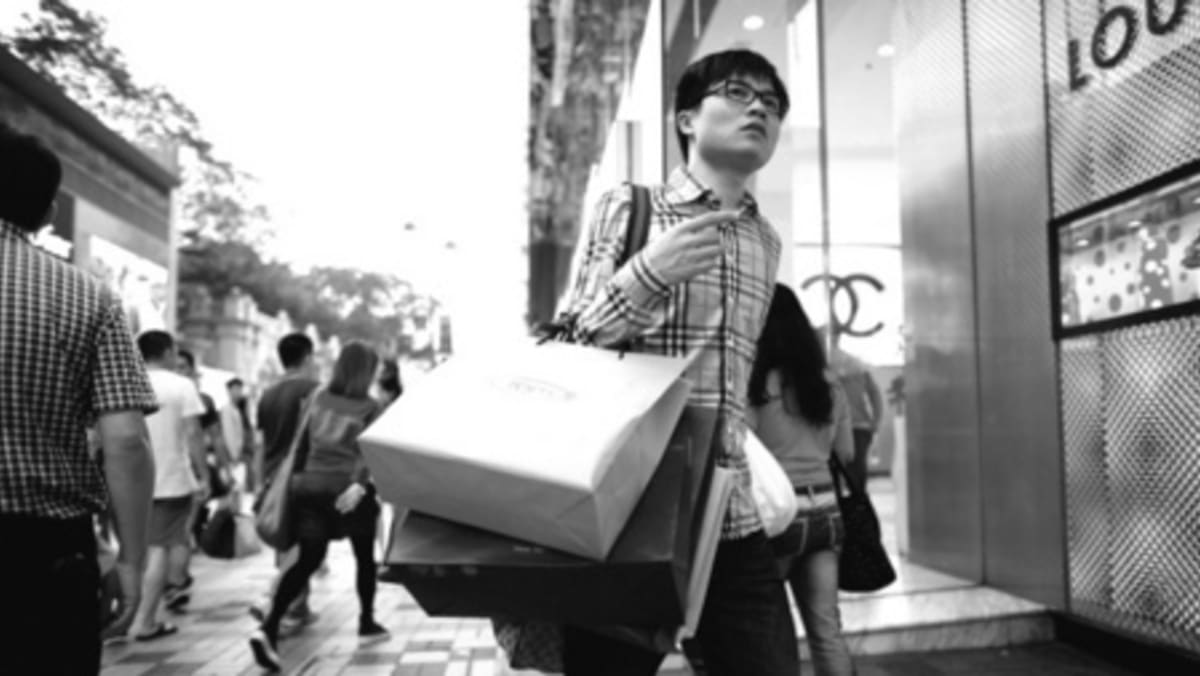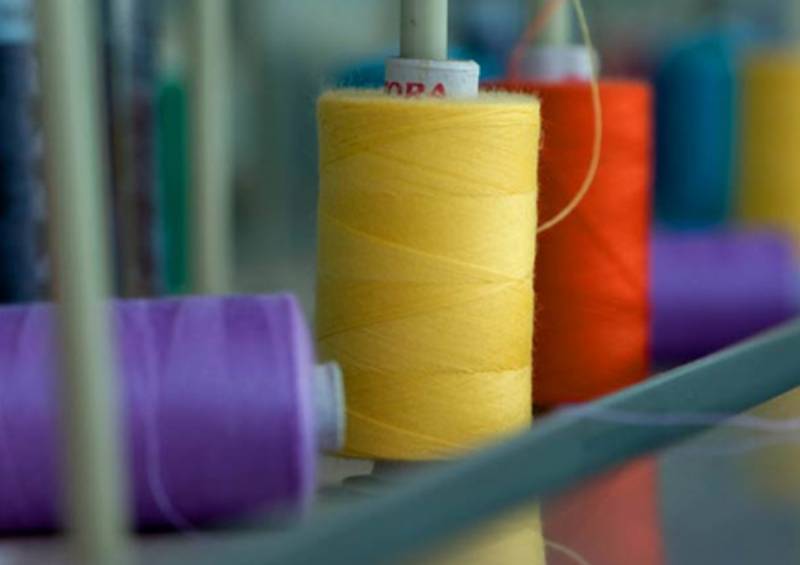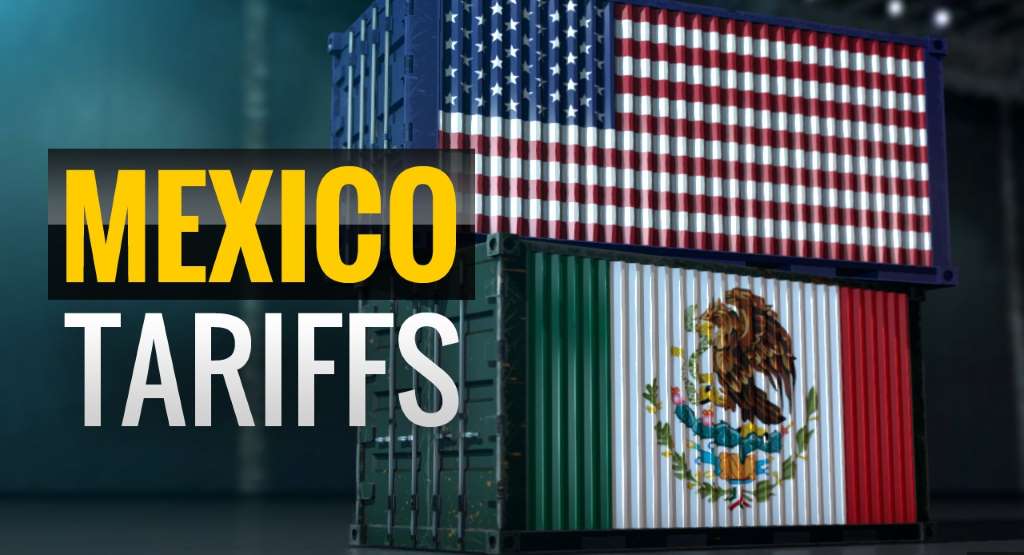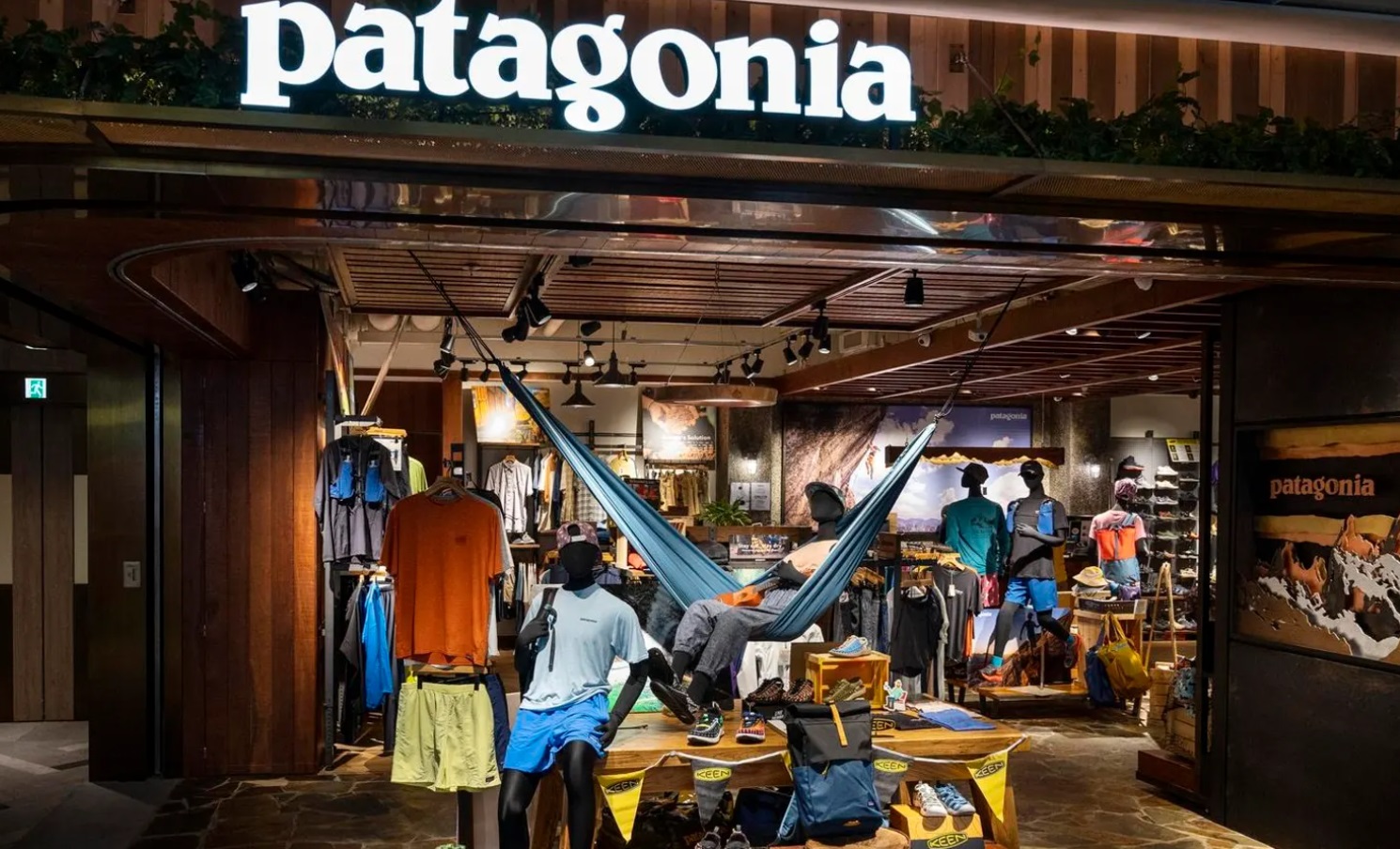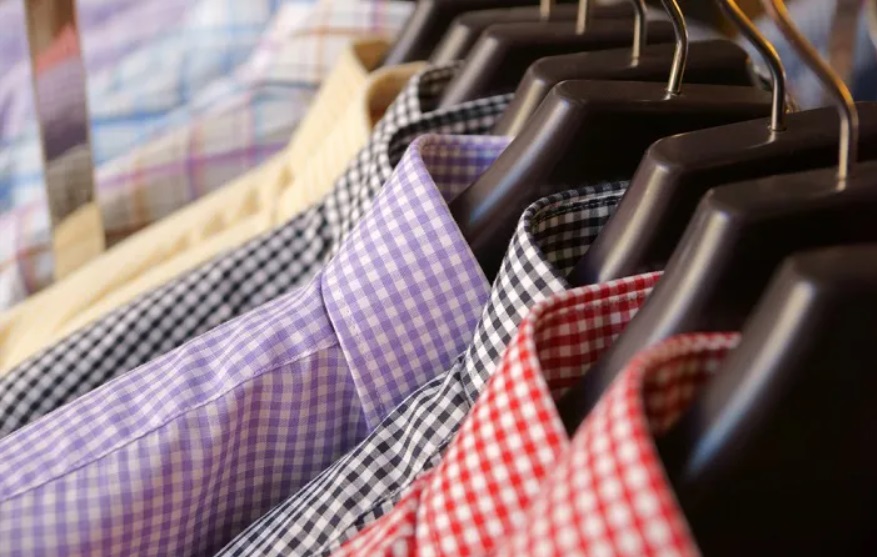FW
US retailer Amazon is launching a line of private label active wear brands. The retailer already owns at least seven of its own trademarked brands that are already selling through the e-commerce site: Franklin & Freeman, Franklin Tailored, James & Erin, Lark & Ro, North Eleven, Scout + Ro, and Society New York.
The company plans to beef up its in-house clothing brands in the coming months, expanding both its men's and women's lines. Amazon has also been spending more on fashion acquisitions lately, scooping up online stores like ShopBop, MyHabit, and EastDane. And in 2015 it sponsored the New York Men's Fashion Week for the first time. Amazon's total share of the US apparel market is expected to jump from five per cent in 2014 to 14 per cent by 2020, making it the largest US apparel retailer, replacing the current leader, Macy's.
Meanwhile in India Amazon has included a new selection of about 150 Indian and international premium brands like Emporio Armani, Tarun Tahiliani, Versace, Payal Pratap and Monisha Jaising. The platform has about 70 exclusive brand partnerships. Not just apparel, the website has also added luxury watches on its e-shelves like Invicta, Stuhrling, August Steiner, Burgi and Akribos. The sale of watches has been contributing 15 per cent to Amazon’s fashion business, with the business in premium watches doubling in October this year.
Online giant Amazon and Forever 21 are bidding to buy teen retailer American Apparel. Employees are bracing for the worst. Security has been ramped up at the Los Angeles headquarters, where the company employs more than 3,000 factory and administrative workers. Notices about career training and job placement have been posted in elevators.
American Apparel filed for Chapter 11 bankruptcy in the US in October 2015. American Apparel, based in Los Angeles, began as a wholesale T-shirt business in 1998. It eventually built an image around provocative advertising for fashionable merchandise. But the hoped-for turnaround of the clothing manufacturer and retail chain—which has long grappled with shrinking sales and an outsize store footprint—did not happen. A plan to improve online selling didn't pay off, and, at a time when shoppers are going online in greater and greater numbers, American Apparel watched its online sales fall.
The brand has 110 stores in the US and 83 others around the world including UK, Ireland, Germany, Spain, Canada, Japan and Australia. The UK stores have been shut. At least eight US teen retailers have filed for bankruptcy in the past two years as the spending habits of young people shift and they visit malls less often.
"Safexpress, Knowledge Leader and Market Leader of supply chain & logistics industry in the country, has been honored with the Overall Excellence in Supply Chain & Logistics Award by CII SCALE Awards 2016. The award ceremony took place at Hotel Le Meridian, New Delhi on the December 16 last year. The awards recognize and celebrate the outstanding achievements of a company for their exceptional efforts in developing the business to a stage which essentially would facilitate next level of growth."
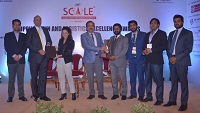
Safexpress, Knowledge Leader and Market Leader of supply chain & logistics industry in the country, has been honored with the Overall Excellence in Supply Chain & Logistics Award by CII SCALE Awards 2016. The award ceremony took place at Hotel Le Meridian, New Delhi on the December 16 last year. The awards recognize and celebrate the outstanding achievements of a company for their exceptional efforts in developing the business to a stage which essentially would facilitate next level of growth. The award has been presented in recognition of the firm’s performance in the field of Road Transportation, 3PL and Warehousing since the last two decades.
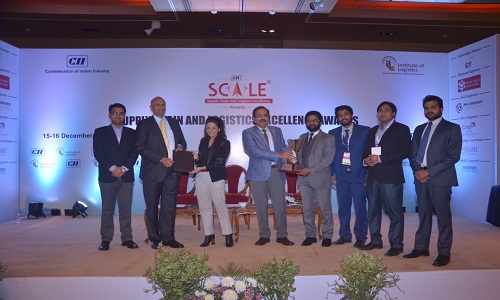
For its massive contribution in the field of skillng, Safeducate, a specialist in supply chain and logistics training, has been honoured with Best Training and Skill Development Company Award by CII SCALE Awards 2016. Speaking on the occasion, Rubal Jain said that supply chain and logistics industry was one of the largest employment generators in the country and happens to be the backbone of the economy. India’s supply chain & logistics industry is poised for an accelerated growth. With India striving to become the global manufacturing hub, it needs to radically improve its supply chain in order to best utilize the various opportunities in the national and international markets. Since it is a people-intensive industry, therefore availability of quality manpower is extremely vital for the success of this industry. For the last many years, Safexpress has been driving a 3PL revolution in the country. On its part, the firm was adding maximum value to businesses at every level, right from providing world-class warehousing support to ensuring time-definite deliveries of goods anywhere in India.
Also speaking on the occasion, Ms Divya Jain averred that this award was an acknowledgement of the organisation’s passion and assertive ideas in the field of supply chain & logistics training and added “Safeducate has been working towards bridging the huge skill gaps prevalent in the Indian economy. Under the Skill India Mission launched in 2015 by the Prime Minister Narendra Modi and Union Minister of State for Skill Development & Entrepreneurship, Rajiv Pratap Rudy, the organization created the Safeducate Container School last year”.
Beginning its journey in 1997, Safexpress began with a mission of delivering logistics excellence to its customers and ensuring their success. Today, the firm has firmly entrenched itself as the ‘Knowledge Leader’ and ‘Market Leader’ of supply chain & logistics industry in India. It offers a wide range of innovative supply chain services including Express Distribution, 3PL and consulting.
"The appointment of à la Alessandro Michele, the quiet Italian creative, to the Gucci team has created quite a buzz in the fashion world owing to his womenswear debut in Milan in February 2015. The ‘multicolored, sparkly’ frocks from that collection have grabbed eyeballs of fashion police. He has been a favourite among celebrities, bloggers, buyers, and editors for his designs – from floral print garments to kangaroo fur lined shoes."
![]()
The appointment of à la Alessandro Michele, the quiet Italian creative, to the Gucci team has created quite a buzz in the fashion world owing to his womenswear debut in Milan in February 2015. The ‘multicolored, sparkly’ frocks from that collection have grabbed eyeballs of fashion police. He has been a favourite among celebrities, bloggers, buyers, and editors for his designs – from floral print garments to kangaroo fur lined shoes.
Why is the need for so much drama about the appointment of new creative or major shake ups in the fashion world? Vanessa Friedman explained that products themselves require investment. They are not cheap. Consumers have to believe they will hold their meaning over time. And the meaning is created by the designer.
What it means for the luxury fashion?
![]()
The recent announcement has certainly given fellow Italian brand, Prada, a run for its money in terms of being one of the most anticipated and talked-about shows during any given season and has given Gucci another lease of life to become the most favoured luxury brand. It is believed that consumers may just be buying a lot more Gucci than before. The house has posted growth (Gucci revenue advanced 4.8 per cent for the fourth quarter of 2015, compared with the 1.5 per cent growth expected by analysts, as reported in February), whereas its Prada continues to struggle in that regard.
Gucci has taken its newfound fame and capitalized on it, using celebrities as leverage. For the editors and columnists of leading fashion journals, Gucci is the celebrity’s go-to brand at the moment because it’s the hottest brand around, their photos go viral when they wear it, and Gucci is brilliant about working with celebs.
There is also something to be said for making and showing clothes people actually want to wear – something few houses have managed to do quite as well (as indicated by their need to revamp other aspects of their brands, such as the runway schedule and their deliveries, in an attempt to lure consumers back into stores).
Giving a historic touch
Michele has tapped a nerve. He is drawing bits and pieces from many other labels and putting them together, as per the fashion analysts, which is working well for the brand. He has again brought back the social media frenzy for the brand with celebrities and socialites flaunting the Gucci collection in their posts. It seems Gucci is doing it right from every angle: public relations, the right amount of accessibility, celebrity endorsement, street style endorsement, and this season, help from an edgy street artist.
Gucci is the brand for the ultimate maximalist. Pushing perhaps even higher than Miuccia Prada’s label, Michele layers historical reference on historical reference, creating a collection that is a carefully created dressing-up box of aesthetically beautiful and well-crafted clothes. It is expected that with such creations, profits will rise steadily into the double-digit increases. In a landscape that is pushing for more disruption of the traditional high fashion model, including a wider sense of inclusiveness, there is certainly something worth mentioning Michele’s approach.
The Spanish brand Zara has a huge reputation for fast fashion but apparently it also has a reputation for stealing designs.
One of its victims is German apparel brand Acronym. Zara has begun incorporating a functional strap into the insides of its some of its coats, which is similar to Acronym’s double-strap backpack-style version. The cross body jacket styling grabbed the attention of millions when rapper Kanye West wore an Acronym jacket on stage during a concert.
In fact Acronym has been ripped off by a lot of designers and brands. But the level of quality and of technical capabilities associated with Acronym's garments - the majority of which include years of research and development - are completely unrivaled by the subsequent copies.
Acronym, which opened in 2002, has limited distribution channels. The brand does not engage in traditional advertising and its price points are high. Also the fact that it has a low key profile emboldens copying to take place.
Replicas are a major problem for the fashion industry. There is a whole spectrum for copying – ranging from cheap knock-offs to accurate reproductions. While most replicas are poor copies, replacing embroidery with print and using inferior fabric, there are some replicas that mimic the originals well.
Chumbak Designs, based in Bangalore, is a foreign-funded homegrown single brand company.
It opened in 2010 and initially supplied to multi-brand stores. Today it operates 18 Chumbak-branded stores in various popular malls and high streets. In recent years, Chumbak has also diversified into apparel and fashion accessories for men and women like wallets and bags as well as home products. It retails over 100 categories.
Chumbak has applied for a single brand license that will allow them to carry out retailing through brick-and-mortar as well as online stores.
In November 2015, India allowed foreign-funded local manufacturers that are controlled by Indians to sell their products through company-owned e-commerce platforms, provided such firms manufacture 70 per cent of their total products themselves and source the rest from local companies.
Prior to that, such companies could sell online only if they manufactured 100 per cent of their products themselves. Currently, an unified single brand permission allows such companies that sell a host of products under a single label to sell through various retailing options including wholesaling, own stores, franchisees and through company owned e-commerce.
Like Chumbak, others like Fabindia and online furniture seller Urban Ladder are seeking such a single brand license.
International fashion brands are set to open more stores in Kenya this year. Among these are Turkish clothing line LC Waikiki, The Foschini Group of South Africa, the UK’s F&F and jewelry firms that include Austria’s Swarovski and India’s Anmol.
They see Kenya as a good investment destination because of the retail environment and the growing middle class. And infrastructure in Kenya is relatively well developed compared to other East and West African countries.
Kenyans have an international outlook regarding fashion and entertainment, always in tune with what is happening in New York, London and Milan. LC Waikiki will open the first store in sub-Saharan Africa in the first quarter of the year. The clothing line has over 600 stores spread across 33 countries.
TFG has 22 different retail brands under its label. The new stores will see the group introduce the Foschini women’s wear shop, the Markham brand targeting men and a second Sterns Jewelry store. Sterns is a contemporary and classic jewelry shop.
Swarovski is a brand known for its crystal glass products and accessories that are widely used by celebrities and fashion designers. F&F is a fashion subsidiary of UK’s largest grocery and general merchandise store Tesco.
Since 2014 China has emerged as India’s biggest trade partner and a country with which India has a large trade deficit. Exports to India account for only two per cent of China's total exports. India’s imports from China rose by more than seven per cent in October 2016, while exports to China fell by 11 per cent, widening the trade deficit to a record 48 billion dollars.
China-India trade cooperation has deepened over the years and the bilateral trade has grown 24 times in 15 years, from 2.9 billion dollars in 2000 to 71.6 billion dollars in 2015. In 2015, China imported two billion dollars worth of cotton and more than 100 million dollars worth of black tea from India, bring benefits to 1.2 million cotton growers and 50,000 tea farmers and sellers in India.
Since China started its reforms and opening-up policy in 1978, its economy has expanded rapidly and, after three decades of spectacular economic growth, China has gained a strong foothold in global trade. Now it is the biggest trading partner for more than 130 countries.
With its fantastic economic growth, China has, in fact, forced the rewriting of the history of global trade. The Made in China label is establishing China's place as a major player in a global economy. India, Pakistan, Bangladesh, US, Europe, parts of Canada, Australia, Africa and several other countries import from China.
"Organised by the Hong Kong Trade Development Council (HKTDC), the 49th edition of Hong Kong Fashion Week for Fall/Winter wrapped up at the Hong Kong Convention and Exhibition Centre (HKCEC). The four-day fair organized from January 15 to 18, attracted around 14,000 buyers from 76 countries and regions. Featuring 1,400 exhibitors from 13 countries and regions, the fair showcased the latest collections of international brands, garments, fashion accessories, fabrics and clothing accessories."
Organised by the Hong Kong Trade Development Council (HKTDC), the 49th edition of Hong Kong Fashion Week for Fall/Winter wrapped up at the Hong Kong Convention and Exhibition Centre (HKCEC). The four-day fair organized from January 15 to 18, attracted around 14,000 buyers from 76 countries and regions. Featuring 1,400 exhibitors from 13 countries and regions, the fair showcased the latest collections of international brands, garments, fashion accessories, fabrics and clothing accessories. More than 20 fashion activities were staged during the four-day fair, including trend-forecasting seminars, buyer forums and a networking reception, as well as 13 fashion parades and presentations, providing the industry with abundant networking opportunities.
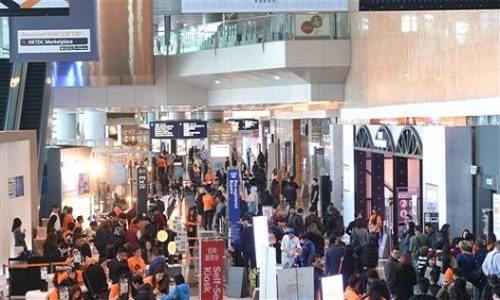
Benjamin Chau, Deputy Executive Director, HKTDC, said the fashion industry is expected to pick up soon as the global economy steadies and the retail market strengthens. “Hong Kong companies are highly adaptable. We saw Hong Kong companies launching a top international star’s namesake accessory collection at the Fashion Week, which received many enquiries. At this year’s Fashion Week, buyer numbers from Indonesia, Thailand and Malaysia saw encouraging growth, and a Thai buyer placed orders on the spot. Hong Kong companies should tap these opportunities amid optimism in emerging markets.”
Among the companies participating this year was Hong Kong exhibitor Innee-Sedona International, which was appointed the sole Asia-Pacific distributor of the Céline Dion accessory brand. Jennifer Chan, MD, Innee-Sedona, said, “Everyone knows that Céline Dion is a famous singer, but not many people in this region know about the existence of the Céline Dion brand. We are making a global launch for the Céline Dion 2018. E-commerce companies from the Chinese mainland, Indonesia, Malaysia and Singapore are interested in buying our products, while buyers from Korea and the Philippines want to be exclusive distributors for their countries.” She also said that an Australian buyer placed a trial order worth $3,000 at the fair, while some buyers sought their help to contact Céline Dion, hoping to develop new clothing lines and other accessories for the brand. She noted that the fair provided an important platform for promoting the brand to international buyers and opening new business opportunities, and they plan to return to the fair next year.
Buyers show optimism
Thai exhibitor Jaspal, a locally renowned brand that operates some 300 retail stores with 15 own fashion brands in Thailand, also found business opportunities in Hong Kong. Viriya Athikiat, the company’s International Sourcing & Merchandising Manager, is responsible for sourcing for the Jaspal brand which runs a chain of 50 stores selling women’s ‘high fashion ready-to-wear’. “I am visiting Hong Kong Fashion Week to find OEM manufacturers for ladies’ wear. I have placed an order worth $75,000 - $80,000 with a Chinese mainland exhibitor from Huzhou for knit sweaters. Talks are underway with another mainland supplier for accessories such as scarves and trims with a potential order worth $40,000 - $45,000.”
Small Orders zone
With demand for sourcing in small quantities, the show once again set up an hktdc.com Small Orders zone, featuring nearly 100 showcases and garment racks with about 450 products available for orders in minimum quantities of between five and 1,000 pieces. During the four-day event, more than 4,100 buyers visited the zone and some 6,400 business connections were established. And with the newly launched hktdc.com Small Orders (Chinese Mainland), mainland buyers who placed small orders could now settle payments in renminbi using AliPay, TenPay, WeChat Pay or China UnionPay conveniently.
To offer year-round sourcing opportunities for fashion buyers, Hong Kong Fashion Week for Spring/Summer will be held on July 9-12, while Centrestage will be staged on September 5-8. Centrestage provides an ideal promotion platform for Asian and international fashion brands and designers, further solidifying Hong Kong’s position as Asia’s fashion capital.
By increasing multi-brand outlets and franchise stores, Bombay Dyeing is in plans to invest around Rs.100 crores for the revival of its brand. It is also planning new products for a turnaround in 2017-18. The company is reinventing itself for which major investments have been lined up. Soon after the company decided to exit textile manufacturing, the reinvention started more than a decade ago.
The manufacturing will be outsourced and from now till 2020, the Wadia group-owned company plans to invest more than Rs 100 crore in the brand and double its multi-brand outlets to 10,000 more than double its franchise stores to 500 and introduce 3-4 new products every year. These measures would help the segment more than treble its revenues to Rs 1,000 crore by fiscal 2020 from Rs 305 crore last year.
Stating that eastern India had a huge potential in the sector, it is said that market share in this region could be enhanced from 12 per cent at present to over 20 per cent. Bombay Dyeing is also setting up its in-house design studio and system for high-tech digital print to boost production in premium segment. It is also said that the company was finalizing tie-ups with e-commerce companies like Amazon, Flipkart and Snapdeal to reach the product at the customer's doorstep.

